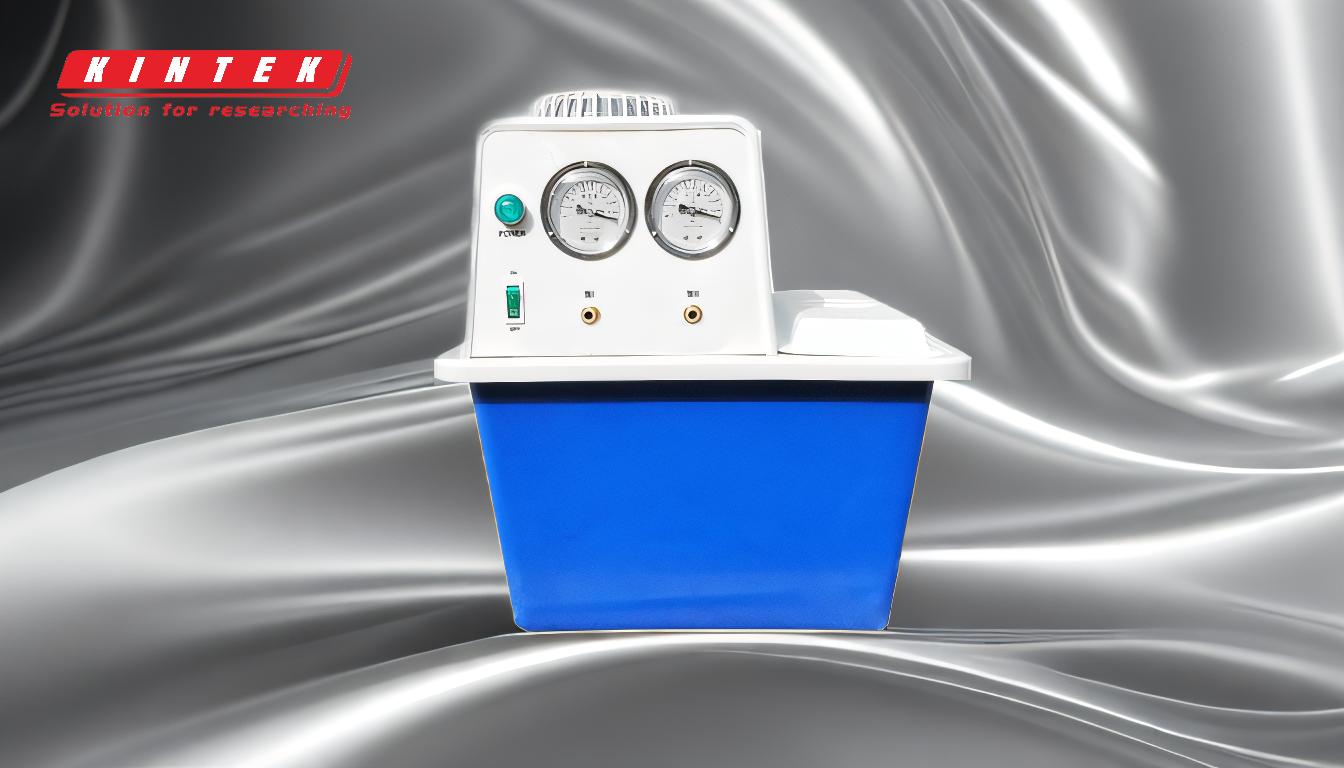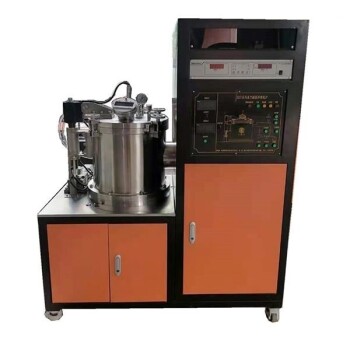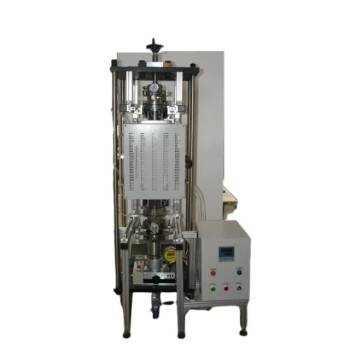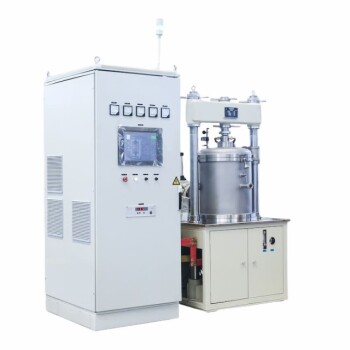A diffusion vacuum pump is a type of vacuum pump that operates on the principle of gas diffusion to achieve high vacuum levels. Unlike mechanical pumps, it does not rely on moving parts to compress gas. Instead, it uses a high-speed jet of vapor (often oil or mercury) to entrain gas molecules and direct them toward the exhaust, creating a pressure difference. This process allows the pump to achieve extremely low pressures, making it suitable for high-vacuum applications in industries such as semiconductor manufacturing, research laboratories, and space simulation. Diffusion vacuum pumps are often paired with a backing pump, such as a diaphragm vacuum pump, to handle higher pressure ranges before the diffusion pump takes over.
Key Points Explained:

-
Working Principle of a Diffusion Vacuum Pump:
- Diffusion vacuum pumps operate by using a high-speed jet of vapor (typically oil or mercury) to entrain gas molecules from the vacuum chamber.
- The vapor jet creates a pressure gradient, directing gas molecules toward the exhaust, where they are removed by a backing pump.
- This process does not rely on mechanical compression, making it suitable for achieving ultra-high vacuum levels.
-
Key Components:
- Vapor Source: The pump uses a heated fluid (oil or mercury) to generate the vapor jet.
- Nozzle System: The vapor is directed through nozzles to create the high-speed jet.
- Cooling System: A cooling mechanism condenses the vapor back into liquid, allowing it to be reused.
- Backing Pump: A diaphragm vacuum pump or similar device is often used to reduce the pressure to a level where the diffusion pump can operate effectively.
-
Advantages:
- High Vacuum Levels: Diffusion pumps can achieve pressures as low as 10^-7 to 10^-10 Torr, making them ideal for high-vacuum applications.
- No Moving Parts: The absence of mechanical components reduces wear and tear, leading to lower maintenance requirements.
- Chemical Resistance: When using chemically stable fluids, these pumps can handle corrosive gases.
-
Applications:
- Semiconductor Manufacturing: Used in processes like thin-film deposition and etching, where high vacuum is critical.
- Research Laboratories: Ideal for experiments requiring ultra-high vacuum, such as surface science and particle physics.
- Space Simulation: Used to replicate the vacuum conditions of space for testing spacecraft components.
-
Comparison with Diaphragm Vacuum Pumps:
- While diffusion pumps excel in high-vacuum applications, diaphragm vacuum pumps are better suited for low to medium vacuum levels.
- Diaphragm pumps are oil-free and chemically resistant, making them ideal for applications where contamination is a concern, such as in the food, cosmetics, and chemical industries.
- Diffusion pumps require a backing pump, often a diaphragm pump, to handle higher pressure ranges before they can operate effectively.
-
Maintenance and Limitations:
- Diffusion pumps require regular maintenance of the heating and cooling systems to ensure efficient operation.
- They are sensitive to contamination from particulates or reactive gases, which can degrade the pumping fluid.
- The initial setup cost is higher compared to other vacuum pumps, but the long-term benefits of high vacuum performance often justify the investment.
By understanding these key points, a purchaser can make an informed decision about whether a diffusion vacuum pump is suitable for their specific application, especially when paired with a diaphragm vacuum pump for optimal performance.
Summary Table:
| Aspect | Details |
|---|---|
| Working Principle | Uses a high-speed vapor jet to entrain gas molecules, creating a vacuum. |
| Key Components | Vapor source, nozzle system, cooling system, and backing pump. |
| Advantages | High vacuum levels, no moving parts, and chemical resistance. |
| Applications | Semiconductor manufacturing, research labs, and space simulation. |
| Comparison | Best for high vacuum; often paired with diaphragm pumps for optimal use. |
| Maintenance | Requires regular upkeep of heating and cooling systems. |
Discover how a diffusion vacuum pump can enhance your high-vacuum processes—contact our experts today!










